Are There Defenses To A Tampa Florida DUI Charge?
Posted by David C. Hardy on September 7, 2018
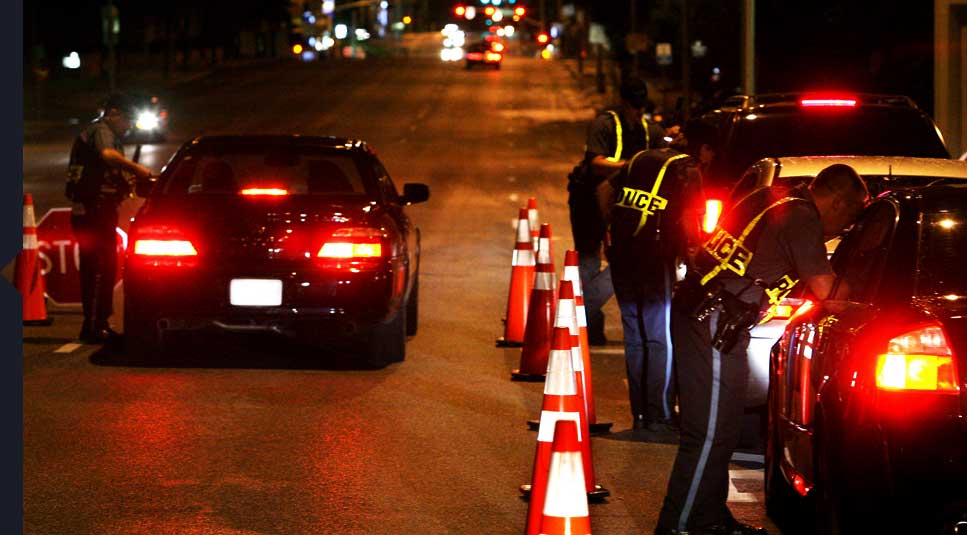
Are There Defenses To A Florida DUI Charge?
One of the first questions that people arrested for a Tampa, Florida DUI ask themselves is whether or not there are any legal defenses to a DUI charge.
Below is a list of just some of the possible defenses to a Tampa, Florida DUI charge:
The Tampa Police Officer’s Stop of the Vehicle Violated the Constitutional Rights of the Driver:

The United States Constitution
If a police officer’s actions violate either the United States Constitution or the Florida Constitution, a judge may prohibit the prosecutor from using the evidence obtained as a result of the officer’s unconstitutional conduct. In some cases, this can lead to a DUI case being reduced to reckless driving or dismissed.
For example, as a prosecutor, I handled a Tampa DUI case in which a police officer stopped the driver of a pickup trick because the pickup’s rear glass window had been removed. The officer claimed that when he spoke to the driver about the pickup missing its rear glass window, that he noticed signs of the driver’s impairment. The officer eventually arrested the driver for DUI.
However, though Florida law requires a windshield at the front of a car, there was no Florida law requiring that a motor vehicle had to have a piece of glass in the rear of the car. Therefore, the Tampa police officer had no legal reason to stop the driver of the pickup truck in the first place. Because all of the evidence in the case was obtained as a result of an unlawful police stop, the case had to be dismissed.
For more information on unconstitutional police conduct in DUI cases, click here.
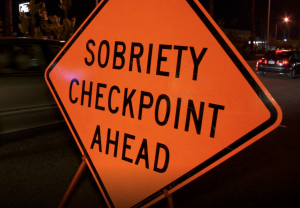
Before the police can set up a DUI roadblock, they must have a written set of guidelines that set out procedures regarding how they will decide which vehicles to stop.
The Tampa Road Block Was Unlawful:
The Tampa Police and the Hillsborough County Sheriff’s Office may use DUI roadblocks to look for persons that are driving under the influence. However, before these agencies can set up a roadblock, they must have a written set of guidelines that set out procedures regarding how they will decide which vehicles to stop. Police are not allowed to stop whichever vehicle they please.
If the Tampa Police and the Hillsborough County Sheriff’s Office can’t prove that they set up guidelines that limit the discretion of the officers running the checkpoint, or if there were guidelines in place but the officers did not strictly follow them, a judge could order the case dismissed due to an unreasonable seizure of the driver.
Tampa Law Enforcement Did Not Have Probable Cause to Arrest the Driver for DUI:
In order for Tampa Police or the Hillsborough County Sheriff’s Office to arrest a driver for DUI, the law enforcement officer must have probable cause that the driver was impaired by alcohol, or that the driver had a blood alcohol level of .08 or above.
As long as the driver is age 21 or older, probable cause for a DUI arrest must be based on more than just an officer’s belief that a driver has consumed some amount of alcohol before driving.
As one Florida court put it, to arrest a person for DUI, the police officer must have: reasonably trustworthy information sufficient to cause a person of reasonable caution to believe that the driver is under the influence of alcoholic beverages to the extent that the driver’s normal faculties are impaired or the driver’s blood or breath alcohol level is .08 or higher.
If a Tampa Police Officer or a Hillsborough County Sheriff’s Deputy arrests an accused and a judge later determines that the officer did not have probable cause to make the arrest, the judge may prohibit the prosecutor from using any and all evidence obtained as a result of that illegal arrest. In some cases, this can lead to a Tampa prosecutor reducing the DUI charge to reckless driving, or the judge dismissing the DUI case.
The Tampa Law Enforcement Officer Did Not Properly Administer The Field Sobriety Exercises:
Field sobriety exercises are designed to help determine whether or not alcohol or drugs have impaired a driver.
Field sobriety exercises include the Horizontal Gaze Nystagmus (or HGN)Exercise, the One Leg Stand Exercise, and the Walk and Turn exercise. For detailed descriptions of these three field sobriety exercises, click here.
Sometimes, Tampa Police Officers or Hillsborough County Sheriff’s Office Deputies don’t properly administer the field sobriety exercises. For example, an officer that is administering field sobriety exercises should administer them on flat ground. However, sometimes an officer will administer the exercises where the ground is on an incline. Further, officers are required to explain and model the exercises to the DUI suspect, but sometimes the officers improperly explain or model the exercises.
A Poor Performance on Field Sobriety Exercises was Due to Factors that had Nothing to do with Alcohol or Drugs:
Sometimes a person performs poorly on field sobriety exercises not because of alcohol or drugs, but rather because of a preexisting injury, arthritis, or some other physical issue.
Also, Tampa Police Officers and Hillsborough County Sheriff’s Deputies often ask a driver to perform field sobriety exercises shortly after he or she has been involved in a motor vehicle accident. Given that the driver may be shaken up, or even injured from the accident, their performance on the exercises may be adversely affected.
Further, when Tampa Police Officers and Hillsborough County Sheriff’s Deputies stop a driver and accuse him or her of DUI, the driver gets nervous, and that nervousness can affect his or her performance on the field sobriety exercises. For example, imagine a person that has been stopped by police and detained on the side of the road for a DUI investigation. During the field sobriety exercises, the police often point a bright spotlight in the person’s face. Also, the police vehicle’s overhead blue lights flash intermittently in the person’s eyes, making it difficult for the person doing the exercises to see. Add to all that the fact that the person is embarrassed, and worried that someone will drive by and recognize them, and it’s no wonder the person does not perform well on the exercises.
Alcohol Is Not The Only Thing That Causes Bloodshot Eyes:
I once represented a client that was suspected of Tampa DUI after a minor traffic accident. As part of the justification for arresting my client, the police officer stated in his report that my client’s eyes were red, glassy, bloodshot, and irritated. The officer speculated that my client’s eyes were irritated because he had been drinking alcohol.
However, my client was employed as a roofer, and he had been working all day prior to the accident removing a shingle roof from an old home. Removing a shingled roof is a dirty job, which causes dust and debris to pervade the work site. Consequently, even if my client’s eyes were irritated, it could be explained by the fact that he had been working all day in an environment of dust and debris. Faced with these facts, the prosecutor decided to reduce the DUI charge to reckless driving.
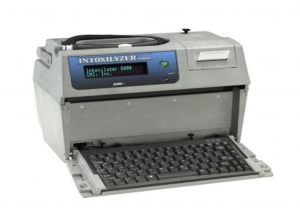
Florida law enforcement agencies use the Intoxilyzer 8000 to administer the breath test in DUI cases
The Tampa Breathalyzer Test Was Improperly Administered:
According to the Florida Supreme Court, in order for the Breathalyzer results to be admissible in court, the prosecutor must prove:
The test was administered substantially in accordance with state regulations. The police used a machine approved by the State of Florida. A person with a valid breath test operator permit administered the test. The machine was calibrated, tested, and inspected in accordance with Florida regulations.
However, there are times when the prosecutor can prove one or more of these requirements. For more information on problems with Breathalyzer results, click here:
In The Case Of A Blood Draw, The Blood Draw Was Improperly Drawn:
In Tampa, Florida, there are four ways in which law enforcement can obtain the blood alcohol test results of a suspect. They are Implied Consent Blood Draws, Forced Blood Draws, Voluntary Consent Blood Draws, and Medical Blood Draws. However, in order for blood test results to be admissible in a Florida Court, the prosecutor must prove that the blood sample was taken properly – both legally and medically. For more information concerning DUI blood draws, click here.
In The Case Of A Urine Test, Even a Positive Result Does Not Prove DUI:
Florida’s Implied Consent Law requires any person who drives a vehicle within the State and who is suspected of DUI to submit to a chemical test of their urine.
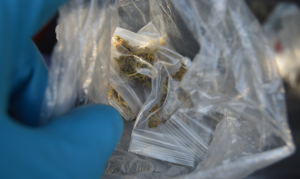
When investigating DUI cases, police sometimes use urine tests to check for the presence of cannabis in a driver’s body.
Urine tests are used to detect drugs like marijuana, cocaine, prescription painkillers, or even over the counter medicines that might affect a person’s ability to drive.
Typically, when a person arrested in Tampa for DUI provides a breath sample and the result is under .08, police officers will then request a urine sample and test it for controlled substances.
Urine tests are of limited value to police in proving a Tampa DUI because while urine tests may show the presence of a drug, they don’t indicate when the person took the drug or if the person was still under the influence of the drug at the time the sample was provided. For example, marijuana can be present in a person’s urine for weeks after smoking, but the effects of marijuana only last a few hours.
Therefore, depending on the facts of the case, a prosecutor might reduce a Tampa DUI based on a positive urine test to reckless driving, or even drop the case.
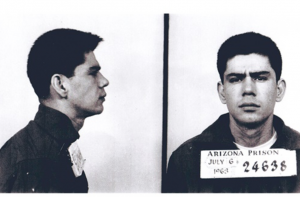
The Miranda Rights which Police read to suspects come from the U.S. Supreme Court Case of Miranda v. Arizona.
The Tampa Police Officer or Hillsborough County Deputy Did Not Read The Miranda Rights:
In the case of Miranda v. Arizona, the United States Supreme Court held that when a person is in police custody, and the police want to ask the person questions about a criminal investigation, that the police are obligated to read the person of list of rights before they begin the questioning. We commonly know these rights as the Miranda Rights.
The Miranda Rights that a police officer reads to a suspect are:
You have the right to remain silent. Anything you say can and will be used against you in a court of law. You have the right to have an attorney. If you cannot afford one, the court will appoint one to you. Do you understand the rights I have just read to you? With these rights in mind, do you wish to speak to me?
However, sometimes, a Tampa Police Officer or a Hillsborough County Sheriff’s Office Deputy will place a DUI suspect in custody, ask them questions, but not read them their Miranda Rights until after the questioning is over.
For example, in one Tampa DUI case I handled, a police officer ordered a woman (we will call her Sally for this example) that was suspected of DUI out of her car. A police video recording showed that the officer then ordered Sally to sit on a curb behind the car. A few moments later, the officer raised his voice and told Sally not to move. The officer then informed Sally that she was detained, and he then began to question Sally about whether or not she had been drinking that evening.
Only after Sally had answered several of the officer’s questions did the officer finally read Sally her Miranda Rights. In this case, there was a good argument that the officer had violated Sally’s Miranda Rights, because a judge would have likely considered Sally in custody when the officer told her she was detained, and the officer was certainly interrogating Sally by asking her questions about her drinking that evening.
When a Tampa Police Officer or a Hillsborough County Sheriff’s Office Deputy violates a suspect’s Miranda Rights, a judge may prohibit the prosecutor from using any of the evidence that the police obtained as a result of the Miranda violation.
In Sally’s case, it’s likely that a judge would have told the prosecutor that the answers that Sally gave to the officer’s questions, which she provided prior to the Miranda warnings, would not be admissible against Sally at a trial. The exclusion of evidence like this can lead to a prosecutor reducing a DUI case to reckless driving, or the judge dismissing the case.
In the case of Sally, the prosecution reduced to the case to reckless driving, which allowed Sally to avoid a conviction for DUI.
For more information on Miranda Rights, click here.
The Florida Accident Report Privilege:
Florida Law requires a person involved in a car accident to report the incident to police, or in some cases directly to the Florida Department of Highway Safety and Motor Vehicles.
However, because Florida law requires a person to provide information about an accident, this raises the possibility that the person could be forced to be witness against himself in a criminal case, which is strictly prohibited by both the United States Constitution and the Florida Constitution.
Therefore, the Florida Legislature has created the accident report privilege, which states that if a person makes a statement to a law enforcement officer for the purpose of completing a crash report, that the person’s statement can’t be used against him in a criminal prosecution.
However, if a Tampa Police Officer or Hillsborough County Deputy that is investigating a crash informs a suspect that the crash investigation has ended, and that the criminal investigation has begun, and the officer then reads the suspect his Miranda Rights, then the Accident Report Privilege will no longer apply and what the person tells the officer can be used against him in court.
Sometimes though, a Tampa Police Officer or a Hillsborough County Sheriff’s Office Deputy fails to inform a DUI suspect that the crash investigation has ended and the criminal investigation has begun. In cases like these the Florida Accident Report Privilege may apply, and make the suspect’s statements inadmissible against him in a criminal case. A police officer’s body camera video can be an excellent source of evidence to prove that the officer violated the accident report privilege.
Time of Driving v. Time of Breath Test:
One of the ways that a prosecutor can prove a Tampa DUI is to prove that the person had a blood alcohol concentration of .08 or greater at the time the person was driving a motor vehicle. However, especially in cases in which there was a minor traffic accident, by the time the police arrive at the scene, interview witnesses, conduct an accident investigation, conduct a DUI investigation, and then administer the breathalyzer test, hours may have passed. In cases like these, it may be difficult to determine if the driver’s blood alcohol concentration was above .08 at the time the accused was driving the motor vehicle.
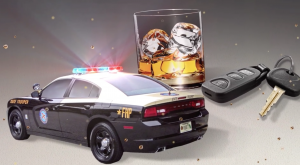
To prove actual physical control in a Tampa DUI case,, the prosecutor must show that the defendant was physically in or on the vehicle and had the capability to operate the vehicle, regardless of whether he or she was actually operating the vehicle at the time.
The Driver Did Not Have Actual Physical Control Of The Motor Vehicle:
Florida Statute 316.193(1) makes it a crime for a person to be “driving or in actual physical control of a vehicle within this state” while under the influence of alcohol or drugs. When a defendant is not driving a car, the State may proceed on a theory of actual physical control. To prove this actual physical control, “the defendant must be physically in or on the vehicle and have the capability to operate the vehicle, regardless of whether he or she is actually operating the vehicle at the time.”
I once handled a DUI case in which a deputy found a woman in a car with its motor running. She was asleep, seated in the front passenger seat that was separated from the driver’s seat by a console and gearshift. The driver’s door was wide open, and the front passenger door where the woman was seated was closed. A neighbor said that car had been there at least two hours. After the deputy woke the woman up and questioned as to where the driver of the car was, she exclaimed: “What the hell, he left me here!”
To be convicted of DUI, the woman must have intended to place herself in actual physical control of the vehicle. However, in this case, it was possible that another person drove the vehicle to where the deputy found it, and then abandoned the woman while she was passed out in the passenger seat. In such case, the woman would not have had the intent to place herself in actual physical control of the vehicle.
Because of these issues with the case, the prosecutor reduced the case to reckless driving.
There is Insufficient Evidence That The Driver Was Under The Influence:
Sometimes, there is simply not enough evidence to prove a person drove under the influence. For example, imagine a case in which a Tampa Police Officer or a Hillsborough County Sheriff’s Office Deputy officer stops a vehicle not because a driver’s erratic driving, but rather because of a broken taillight. Further, imagine that the person performs well on the field sobriety exercises, but then elects to refuse a breath test. In a case like this, there may simply not be enough evidence for the prosecutor to prove beyond a reasonable doubt that the driver was under the influence.
The Tampa Police Officer or Hillsborough County Sheriff’s Deputy Entrapped The Driver:
There are two types of entrapment, objective entrapment and subjective entrapment.
Objective Entrapment: Objective entrapment focuses on the conduct of the police officer. Objective Entrapment may occur when a police officer’s conduct is so unfair that it violates a person’s right to due process of law, which is guaranteed by the Florida and Federal Constitutions.
Subjective Entrapment: Subjective entrapment focuses on the mind of the accused. Both Federal and Florida courts disapprove of police officers tricking otherwise law-abiding citizens into violating the law.
To understand objective entrapment and subjective entrapment, we need to look at an example.
Imagine that a couple by the names of Charlie and Lucy decide to go out and visit a few different bars in south Tampa to celebrate Charlie’s 21stbirthday. Charlie wants to drink a lot of beer, so Lucy agrees stay sober and serve as a designated driver. By the time the couple arrives at the third bar, Charlie is clearly under the influence of alcohol, but Lucy is sober and continues to serve as the designated driver.
Now imagine that the Lucy leaves the car running, double-parked in the street, as she runs into a bar to quickly find a friend. Charlie is outside the car leaning on the passenger door, as the car’s engine is running, waiting for Lucy to return. Because Charlie has had a lot to drink, it is obvious that he is under the influence, as he can hardly stand, his speech is slurred, his eyes are blood shot, and he smells of alcohol.
At that point, a Tampa Police Officer drives up, and sees the obviously intoxicated Charlie outside the vehicle, leaning against the passenger door. The officer approaches Charlie, and Charlie admits the vehicle belongs to him. The officer then tells Charlie that if he does not get in the car and move it immediately, that he will have the vehicle towed. When Charlie gets in the driver’s seat, the officer immediately turns on his blue overhead lights, activates his siren, and arrests Charlie for DUI. Though this case may seem far-fetched, it is close to the facts of an actual case.
Arguably, the Tampa officer objectively entrapped Charlie, because when he told Charlie to move the car or it would be towed, the officer was essentially forcing Charlie behind the wheel – even though it was clear that Charlie was under the influence.
Also, there is a good argument that the Tampa Police Officer subjectively entrapped Charlie, because the officer encouraged Charlie to commit a crime (get behind the wheel while under the influence) when Charlie had no intention of doing so.
In the actual case upon which these facts are based, the prosecutor saw the weaknesses in the case, and therefore reduced the case to reckless driving.
The Driver Committed a Tampa DUI out of Necessity:
Sometimes, an emergency may occur, which requires a person to drive, even though that person knows that they under the influence. In situations like this, the defense of Necessity may apply.
In a Tampa DUI case, when a person claims the defense of necessity, they are admitting that they drove under the influence, but that their actions should be excused because of the extreme circumstances in which they found themselves.
The essential elements of the defense of necessity are:
That the defendant reasonably believed that his action was necessary to avoid an imminent threat of death or serious bodily injury to himself or others. That the defendant did not intentionally or recklessly place himself in a situation in which it would be probable that he would be forced to choose the criminal conduct. That there existed no other adequate means to avoid the threatened harm except the criminal conduct. That the harm sought to be avoided was more egregious than the criminal conduct perpetrated to avoid it. That the defendant ceased the criminal conduct as soon as the necessity or apparent necessity for it ended.
For example, in one Florida case, a man testified that he had driven under the influence because his cat was very ill, and he was rushing the cat to an all night veterinary clinic. In that case, the court held that the defense of necessity might have applied if the driver were rushing an extremely ill person to the hospital for medical care, but not a cat.
I once watched part of a Tampa DUI jury trial in which a woman testified that she had driven under the influence in order to escape a bar parking lot in which she had been confronted and threatened by a violent ex-boyfriend. The woman’s defense attorney cited the defense of necessity in her closing argument. The jury found the woman not guilty.
Involuntary Intoxication in Tampa:
In a Tampa DUI, the Defense of involuntary intoxication applies when a person unknowingly ingests a substance that makes him or her intoxicated.
For example, if a person thought that they were drinking a non-alcoholic fruit punch, but then it turned out someone had spike the punch with a strong but tasteless form of alcohol, then the involuntary intoxication defense could apply.

Nationally and Florida Board Certified Criminal Trial Attorney David C. Hardy is a former Tampa DUI prosecutor that has extensive experience handling DUI cases.
More Questions? Contact The Hardy Law Firm, P.A.
These are just some, but by no means all, of the possible defenses to a Florida DUI charge. If you or a loved one has been accused to DUI in Hillsborough County, Pinellas County, or Pasco County, contact Tampa Attorney David C. Hardy.
Attorney Hardy is a former DUI prosecutor that now represents persons accused of DUI. He is Board Certified by the Florida Bar and the National Board of Trial Advocacy as an Expert in Criminal Trial Law. As a prosecutor and defense attorney, he has extensive experience handling all types of DUI cases. For more information concerning Attorney Hardy’s experience, click here.
You may also visit the Hardy Law Firm, P.A. on Facebook.
Posted in Florida Criminal Defense

David C. Hardy
David C. Hardy is a criminal defense attorney with offices in Tampa, Florida. He is a former prosecutor that is Board Certified by the Florida Bar and The National Board of Trial advocacy as an expert in criminal trial law. He practices in the areas of federal criminal defense, Florida criminal defense, and Florida DUI defense.
